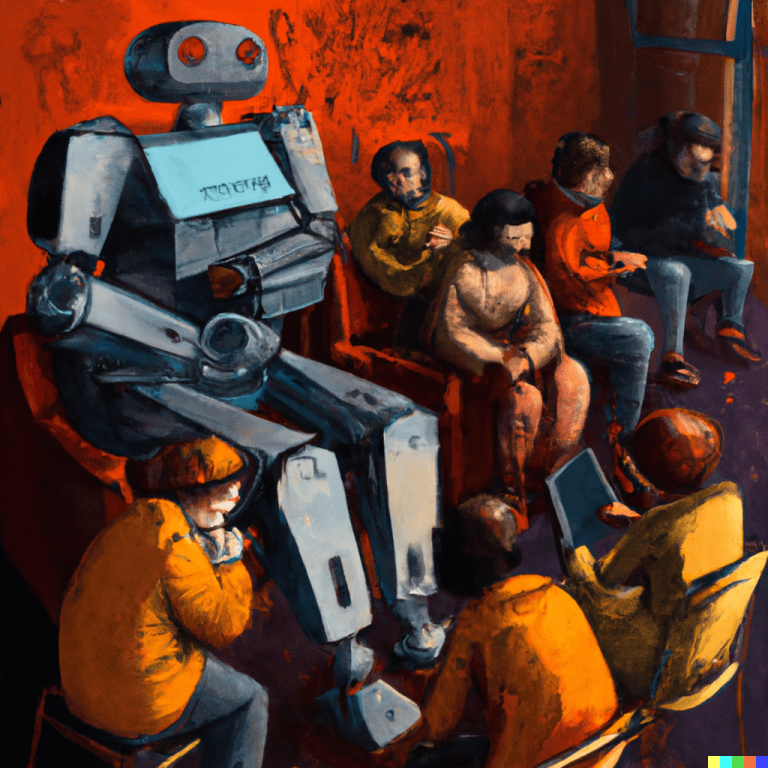“There is broad recognition in the field of education that generative AI is here to stay”
31 October, 2024 Dominik Lukes
Dominik Lukes
Dominik Lukeš is a specialist in artificial intelligence and education working at the University of Oxford as the Lead Business Technologist in the AI and ML Competency Centre. He has been involved in computational linguistics and natural language processing since the 1990s. He is the author of the Oxford report “Beyond ChatGPT: State of AI in Education 2023”. He also created an AI Task Evaluation framework to help people understand how to use AI tools in schools and universities. He shares his insights through his AI in academic practice newsletter on LinkedIn and speaks at conferences about AI in education.
In 2021, Lukeš founded the Reading and Writing Innovation Lab at Oxford, focusing on how AI and other technologies can improve literacy and education. He also advises on education and AI as a member of the Higher Education Editorial Advisory Board for McGraw Hill and the Bett UK Advisory Board. He is the founding member of AI Thought Exchange, an international group of scholars interested in exploring the impact of generative AI on higher education around the world. We took the opportunity of Learning Impact Europe 2024, which the Universitat Oberta de Catalunya (UOC) hosted from 9 to 11 October, to talk with him about the treatment of AI and pedagogy at the University of Oxford and the AI and ML Competency Centre.
How have you embraced AI at the University of Oxford?
The University of Oxford was deeply involved from the very start in the UK university response to the challenge of generative AI. It was an active contributor to the development of the Russell Group principles on the use of generative AI tools in education and adopted them as the guide to its own activities. We have conducted many internal reviews and established a training series and guidance for both academics and students. More recently the University established the AI and ML Competency Centre, which is tasked with supporting the development of institutional capacity in AI.
How do you develop staff training in AI literacy and professor counselling on AI at the AI and ML Competency Centre?
At the AI and ML Competency Centre we provide consultations to staff and departments, we run a series of training programmes and we work with others who are active in exploring the possibilities of artificial intelligence in all aspects of academic practice. We also have several internal special interest groups where we discuss and share latest developments and answer questions about what generative AI may mean in practice.
From your experience at the Reading and Writing Innovation Lab, what are your main insights about how AI improves students’ educational results?
One of the key principles of the Reading and Writing Innovation Lab was to focus on the process of academic practice and identify where people may encounter blocks that technology may help them overcome. But we were also aware of the fact that technology may sometimes be one of those blocks and focused very much on the strategies for productive reading and writing that are necessary for technology to even begin to assist you. Strategies and technologies always went hand in hand in a very personal way.
The earlier generations of artificial intelligence were always a part of the mix of technologies used for assistance – many of those would not even be considered AI now – such as optical character recognition. Also, the early dictation and text-to-speech tools relied on machine learning techniques but were not marketed as artificial intelligence.
The new generation of generative artificial intelligence that was introduced to the world through ChatGPT opened up a whole new era of assistance that can directly support cognition and not just perception. We are seeing it transforming the way many people (both students and academics) approach many tasks that were previously quite challenging to them and benefiting greatly.
However, this is still less than two years old so we will have to wait for the more global impact to become clear. Both the technology and methods for using it effectively are constantly evolving but there is no doubt that it will continue to have impact.
The new generation of generative AI that was introduced to the world through ChatGPT opened up a whole new era of assistance that can directly support cognition and not just perception.
What measures would improve the fair use of AI in students’ tasks?
I think there is now broad recognition in the field of education (as stated in the Russell Group principles) that generative AI is here to stay and that there are very much legitimate uses of it in academic contexts – for students, their teachers and researchers. But we are still trying to develop a better understanding of where the line is between legitimate and illegitimate uses. Many people are asking for clear and straightforward guidelines but I don’t believe that we are in a position to establish those. We are used to being the ones who are telling students what good practice is but with generative AI we are all learning together. So, I think it is important to be open and honest about it with both ourselves and our students as a starting point.
How do you envision the future of education?
The history of education is a history of change but also of constancy. The world is constantly changing and education along with it. But humans and what it takes to learn and prepare for the world are changing much more slowly than the world around them. Much of what we think of as education is institutions and institutions change even more slowly. So if you compare the school or the classroom of 1800, 1900, and 2000, you will see some radical changes but also have a sense of familiarity. So, when we think about the future of education, we need to think about this history and realize that change will go hand in hand with stability. And these two processes will be experienced differently by people involved in education: some will feel things are changing too much too fast, while others will be impatient with the system and push for more radical transformation.
I see the future of education very much similar to the present but with more opportunities for a wider range of people to take part enabled by these new technologies. Language and cognitive limitations will become much less of a barrier to learning for many people thanks to the new technologies. But I think education in 10 or 20 years will very much be recognizable to us just like education today still feels familiar to those who went through it 10 or 20 years ago.
The world is constantly changing and education along with it.
The eLinC’s Observatory of Educational Trends and Innovation opinion: AI literacy has become a crucial element in professors’ portfolio of teaching competencies, not only working with them in the classroom but also designing courses, among other educational uses. Here lies the relevance of higher education institutions, and especially teaching and learning centres or similar bodies. These centres work to accompany professors in this process, such as the AI and ML Competency Centre at the University of Oxford and the eLinC at the UOC. These same outputs must be provided to students, whether through specific AI competency courses or integrating AI into classroom activities, given that it has become a tool for all citizens and they must learn how to use it responsibly. The idea that learning is not a procedure but a personal lifelong benefit should foster the fair use of AI in education, but first institutions must apply strategies to ensure beneficial use in the classroom.







